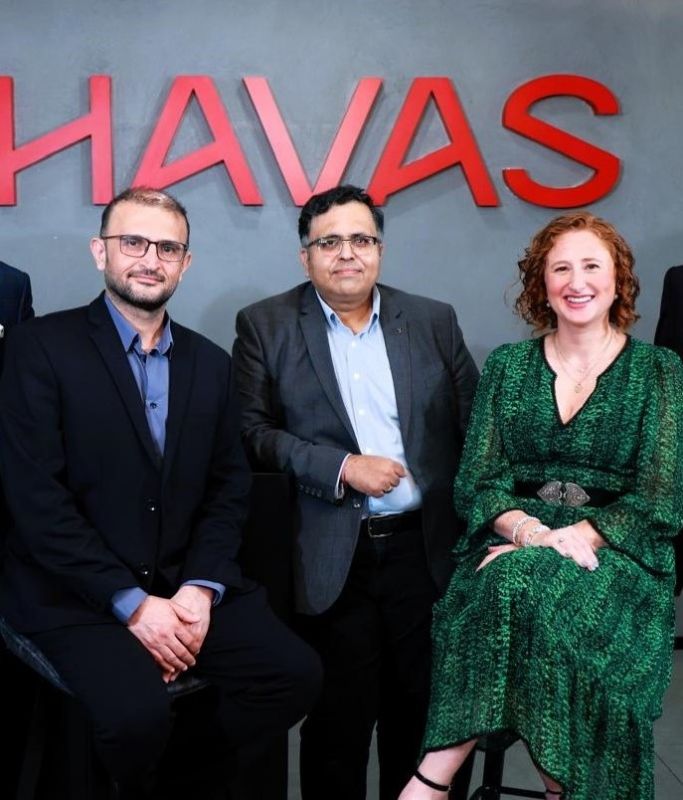Havas launched its global technology, data, and analytics division, CSA, in India on 4 October with an aim to empower clients to harness customer data and accelerate business growth.
In a strategic move to further solidify its data and tech capabilities, the agency has merged PivotConsult, the strategic consulting arm of PivotRoots, into CSA India.
Gaurav Seth has been appointed as managing partner to lead CSA India’s operations, reporting to Shibu Shivanandan, CEO and founder, PivotRoots.
Manifest caught up with Jamie Seltzer, global executive vice president, CSA & Mx Analytics, and Seth on the sidelines of CSA's launch in India, where they delved into the agency’s plans to leverage best practices and innovations from its global network, spanning 17 markets, to compete in a diverse market like India. Seltzer emphasised the importance of focusing on data-driven services and navigating data privacy regulations amid evolving client expectations in an increasingly cookie-less world.

From left: Gaurav Seth, Mohit Joshi and Jamie Seltzer
Edited excerpts:
You started globally scaling CSA around June last year. What motivated CSA’s foray into the Indian market at this juncture?
Yes, we launched CSA as a global network at Cannes last year in June. The launch brought together the existing capabilities within the network that we've been building over the last 10 years. Hence we were able to launch with several markets because those capabilities already existed there, rather than having to build everywhere from scratch. By uniting everything under the global CSA banner, our goal was to implement a consistent approach and framework across all markets, ensuring we could deliver uniform, high-quality products to global clients while also creating incremental value in each market.
With regard to our India launch, we've seen exponential growth in the India market within Havas over the last three years. When considering where to position our newest CSA markets, India was a clear choice for us - The growth of Havas in India, the expanding client base, and the market’s rapid evolution, along with increasing consumer demand, made this the right time to enter. Our presence in India will help support the growing Havas offices by delivering new services to clients.
What role does CSA India play in complementing Havas Media Network’s current offerings in the region?
CSA does exactly that - It's 'complementary' to Havas’s offerings. As the industry evolves, and clients' expectations evolve, they're trying to understand how they can be more data-driven. There isn't a single RFP (request for proposal) that comes out that isn't discussing data, technology, and analytics in some way. And, our goal is to help push our clients along on that journey, so this was the right time to bring that to India and have the complementary skill set within CSA - within our consulting business, our technology mark and implementation business, and our marketing science and analytics business - to complement the existing work that's being done with within the Havas business groups.
With India being a highly competitive and price-sensitive market, how will CSA differentiate itself from existing players in the space?
One of our key focuses is the truly global nature of CSA. By the end of this year, we'll be operating in 17 markets within our overarching network. These markets collaborate multiple times a month to exchange ideas, showcase new work, share best practices, and co-create products and methodologies at both local and global levels. This allows us to deliver a high level of capability and knowledge to every one of our markets. Many of our competitors, who are limited to single or fewer markets, lack the global scale we possess. From an Indian market perspective, they benefit from tapping into this global network—accessing the knowledge, products, and best practices built across our markets, as well as our partnerships with global giants like Google, Amazon, Meta, Edna, and others.
It's also about ensuring ideas and knowledge are shared across borders. Many organisations assume that innovation is driven by the North Americas, the UKs, and France, But the reality is that we've seen so much innovation coming out of markets like India and some of our ‘smaller markets’- not smaller in population but smaller in scale for us. It allows us to showcase innovation and depth of skill sets, talent, and knowledge base. The drive within India is critical for us to be able to have a two-way street of sharing information out and back in.
With digital transformation accelerating in India, what industries or sectors do you anticipate will benefit most from CSA’s integrated data solutions?
Gaurav Seth: CSA augments the services that Pivot Roots offers in India by leveraging its global expertise and best practices as we onboard new clients. We have around 30 clients in India, including financial services, which naturally holds a wealth of user information due to the nature of the industry. E-commerce, being digitally native, is another sector benefiting significantly, as it primarily conducts business online and generates the largest revenue.
Other sectors, like CPG (consumer packaged goods), may not have as much data available but are taking significant steps to gather user data, especially as they are some of the biggest spenders in the digital ecosystem. This presents an interesting challenge: how to develop strategies to bring users online and engage with them responsibly. Additionally, industries like automotive, pharmaceuticals (particularly for over-the-counter products), and OEMs, such as mobile phone manufacturers like Samsung and Apple, will rely on our global CSA network. We've already worked with major brands in these sectors.
Overall, the entire market is experiencing growth as India's economy strengthens and consumer spending increases. With more consumers coming online and brands seeing a higher percentage of their sales through digital channels, the need for technology to effectively reach and engage these users is becoming increasingly critical.
In today’s data-privacy-driven world, what are the implications of Google’s recent decision to keep third-party cookies? Do you see it as a validation of third-party cookies or as a temporary respite to an imminent eradication?
The position that we've taken as a network, and that’s my position as well, is that even though Google has decided not to deprecate third-party cookies, ultimately we will end up in a world where there will be fewer and fewer third-party cookies as time goes by, especially as Google decides to put it in consumer hands. We've seen consumers when given the choice - as we've seen with Apple's ATT and that kind of evolution - they opt out. So, even before we have consumer choice and before Google deprecates third-party cookies entirely, the internet is already between 30 to 50% cookie less depending on which market you're in and which platform you're on. I don't believe that we will ever get to a place where we are 100% cookie-less. Having said that, it's incumbent upon us to advise our clients to be able to take advantage of all scenarios and have a strategy. The key piece here is to have a clear strategy for taking advantage of cookie and cookie-less environments and being able to be ready for what we call an ‘optionality’.
How do you help brands navigate the increasing complexity of data privacy and regulations globally?
Over the last five years and even longer than that, we've all had to become very comfortable with understanding regulations and regulatory changes, and that is now a core part of our businesses. While we don't provide legal advice, we collaborate closely with clients' legal, compliance, and data teams to align strategies with their business goals. Our role is to guide clients through complex regulatory landscapes, helping them understand and address varying interpretations and risk tolerances. Especially in the wake of not just regulations, but also a consumer spotlight on data privacy, and around what data they're exchanging and for what value. Ultimately, it's not necessarily about collecting all the data that you could collect, but really being mindful about collecting what you truly need and what's going to help impact the business, while being respectful of consumer choices.
Looking ahead, what are your short-term and long-term goals for CSA India, and how do you envision the agency evolving in the next five years? Can you share how CSA’s India launch fits into the larger global expansion strategy, and what makes India a key market for you?
The exciting thing for me, as we launch CSA in India and look at CSA’s broader growth, is that we are on track to double in size year over year from 2023 to 2024, and, I believe, we will continue along this growth trajectory as we move forward.
From a global perspective, we have very high hopes and expectations for India, for the Indian market, and for CSA India. We recognise the growing nature of the Indian market and the ability to tap into a market with such language, cultural, and consumer diversity. And it is a huge opportunity for us as a global organisation to work with the CSA and Pivot Consult teams in India to bring some of the work that we've been doing to the Indian clients. And also export some of the amazing work that's already being done here outside. I think the key here is that it's not just data and tech for the sake of data and tech, but how it drives value for clients and consumers.
How do you see the global data and analytics market evolving in the coming years?
In many ways, the global data and analytics market is exploding, and it has been so for a long time. More and more clients are asking for data expertise. Traditionally, agencies have always acted as consultants — advising on media strategy, media placement, audience understanding, and creative decisions. However, the way we arrive at these solutions has evolved significantly over the past 15-20 years, and more so in the last five odd years, due to the explosion of data availability, enhanced access, and the ability to apply advanced machine learning and data science techniques.
I believe we will only see further growth from here, whether in the technology space or in enabling more personalised and privacy-sensitive experiences. Our ability to analyse and measure the impact of marketing and media, and to deliver more meaningful experiences to consumers, relies greatly on leveraging data analytics and technology. Over the last five to 10 years, we've seen tremendous growth in this area, and its only going to increase here on.










